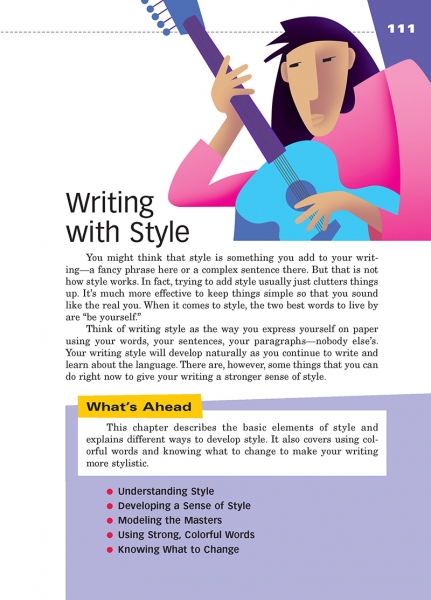Page 111 from

Start-Up Activities
Introduce the topic of style by displaying pictures of clothing styles from previous decades. Ask your students to describe the clothes in each picture. Also, have them comment on the overall style of the outfits.
Help them understand that style relates to the whole outfit and is affected by all parts of it. In the same way, writing style relates to a whole composition but is affected by all parts of it: ideas, organization, voice, words, and sentences.
Think About It
“Vigorous writing is concise.”
—William Strunk, Jr.

Start-Up Activities
Introduce the topic of style by displaying pictures of clothing styles from previous decades. Ask your students to describe the clothes in each picture. Also, have them comment on the overall style of the outfits.
Help them understand that style relates to the whole outfit and is affected by all parts of it. In the same way, writing style relates to a whole composition but is affected by all parts of it: ideas, organization, voice, words, and sentences.
Think About It
“Vigorous writing is concise.”
—William Strunk, Jr.
